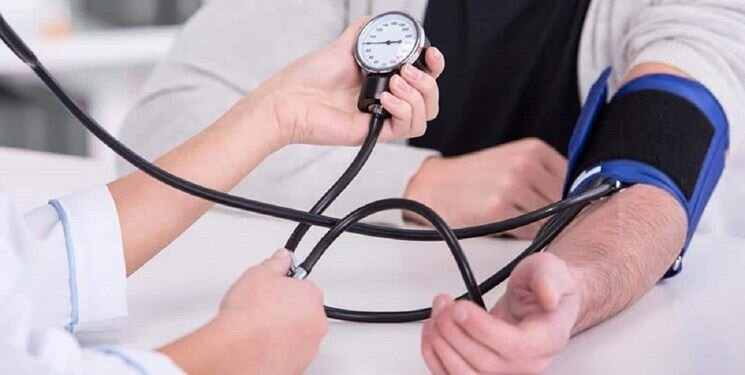Over 16 million people screened for hypertension, diabetes

TEHEAN – A total of 16,096,263 people have so far been screened for diabetes and high blood pressure within the framework of the national health campaign, an official with the ministry of health said on Saturday.
“Of the people screened, 338,012 were identified with probable high blood pressure and 218,365 with probable diabetes,” IRNA quoted Farshid Hosseini as saying.
Talking about the national health campaign, Health Minister Bahram Einollahi said the campaign focuses on providing electronic health records for each family and screening them for diabetes and hypertension, and 70 percent of people are expected to participate in the campaign.
Einollahi added: “About 83 percent of all deaths registered in hospitals are caused by non-communicable diseases. Around 300,000 people die from cardiovascular diseases every year. Some 32 percent of people over 18 years old have hypertension, and 60 percent are unaware of their high blood pressure. Some 30,000 deaths per year occur due to diabetes in the country, which are all significant cases.”
By implementing the national health campaign, half a million deaths from non-communicable diseases and 30,000 deaths from diabetes can be prevented, he added.
Einollahi went on to say that in the future, each individual with a national ID code, will have a health file. In 93 cities, health information is collected by health care providers.
National health campaign
The first phase of the national health campaign started in November with the aim of reducing deaths caused by non-communicable diseases.
Diabetes and hypertension are risk factors responsible for over half a million deaths yearly. The project with the theme of "earlier awareness, better care" will continue until January 5, 2024, ISNA reported.
Nowadays, health is one of the most essential human needs. Before the coronavirus pandemic, people may not have realized its importance, but this disease showed us how precious health is, Einollahi said at a ceremony to unveil the Campaign.
“Maybe everyone thinks that our job is treatment, but it is not true. Our main duty is to prevent diseases and promote health.”
For this reason, we started a project called "national health campaign” on November 11, which will continue till January 5, 2024.
Emphasizing the importance of improving health literacy, Einollahi said, “The level of literacy in the society has increased, and we expect this level to improve in the field of health as well. Also, we hope to manage having an electronic health file for every Iranian with their national identification code to record the history of illnesses in their family, their lifestyle, etc. so that their diseases and their reasons can be traced easily.”
He emphasized the campaign should include over 70 percent of the country's population; there is full preparation for its implementation in all universities of medical sciences, and everyone is mobilized to implement the plan.
Health promotion program
Around 400,000 health volunteers are active in the country, acting as the link between the health system and different strata of the society, ISNA quoted Farshidi as saying on December 5.
Referring to the ‘comprehensive system of social participation’ which was introduced this summer, he said the promotion of health mainly highlights the rights of citizens and social justice.
By people-oriented participatory plans, it is tried to prevent the dominance of a certain group with local influence or the exclusion of some classes from services and facilities.
Health promotion programs aim to engage individuals and communities and promote a healthy lifestyle, prevention, and timely response.
It is a three-pronged plan. The first part involves ‘individual and family’, which refers to individual and family self-care and management. More than three million family ambassadors are active in this field.
The second part is the ‘neighborhood’ that promotes the health and the participation of 400,000 health volunteers.
The third part refers to the workplace and organization that practices a self-care approach at work.
MT/MG
